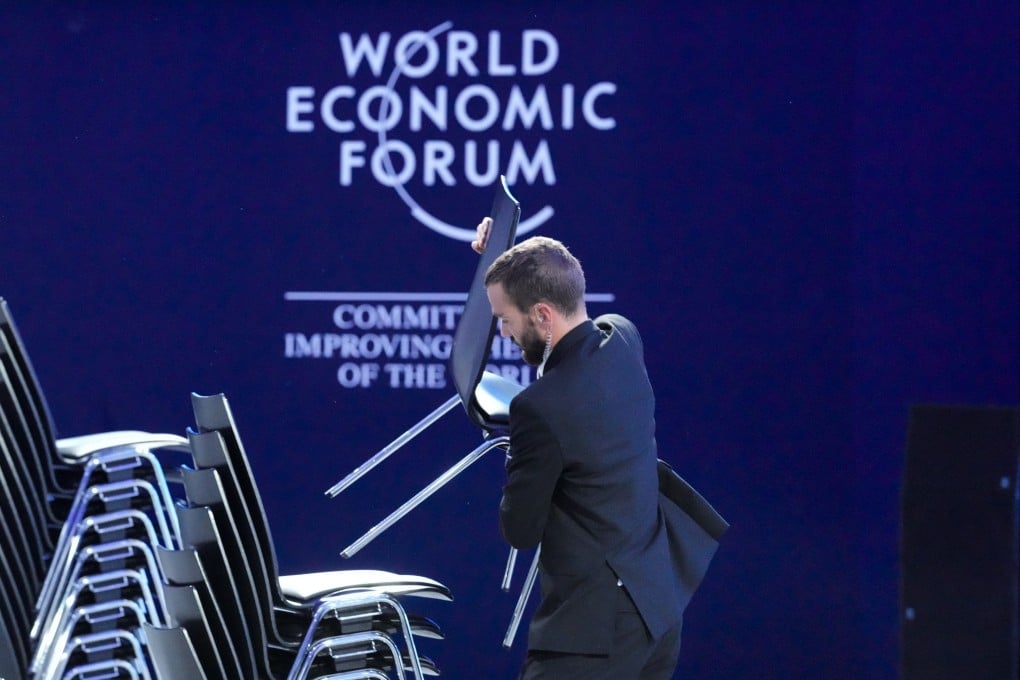As Davos wraps up, what was gained from the glitzy event?
- Annual gathering in the Swiss Alps drew notables such as Ukraine’s first lady, activist Greta Thunberg, actor Idris Elba and hundreds of global decision-makers
- Meeting draws criticism as a hub of power-mongers and money-grubbers seeking to rule the world – it costs upwards of US$1 million a year to belong to the forum

Elites from politics, business, academia and the arts on Friday wrapped up the World Economic Forum’s annual conclave in the Swiss town of Davos – where worries about the war in Ukraine, a warming planet and a cooling global economy dominated discussions about the world’s ills.
The 53rd edition of the weeklong gathering in the Alps drew notables such as Ukraine’s first lady, climate activist Greta Thunberg and actor Idris Elba, plus hundreds of presidents, prime ministers, CEOs and other decision-makers who hashed out deals and voiced demands on everything from trade to tanks for Ukraine.
The meeting perennially draws criticism as a hub of power-mongers and money-grubbers seeking to rule the world, and this year was no exception. Long-time attendee and Kremlin critic Bill Browder launched a tirade about sitting out this year because the forum sought to triple the cost of his participation to US$250,000.
Some deep-pocketed executives shell out upwards of US$1 million a year to be members of the WEF club.
It’s anybody’s guess whether an event that churns up pledges, promises and partnerships to help realise the forum’s ambition of improving the world will bring any concrete progress.
The main Davos takeaways this year included, not surprisingly, Ukraine, the climate and the global economy.